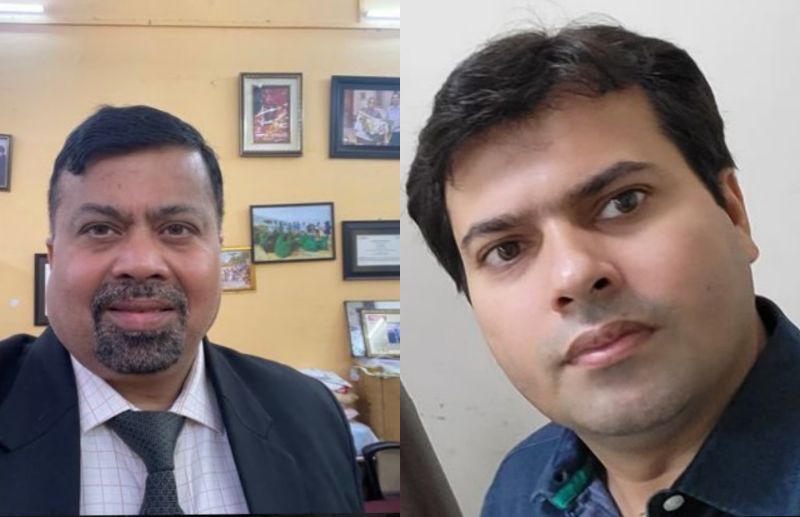
Rushing to the washroom after eating is a normal process, not a disease, says medical experts from IMS BHU
Varanasi. Dr. Vijay Nath Mishra, Professor & Head of the Department of Neurology at IMS BHU, Varanasi, recently tweeted clarifying that the urge to visit the washroom after eating is…

Varanasi. Dr. Vijay Nath Mishra, Professor & Head of the Department of Neurology at IMS BHU, Varanasi, recently tweeted clarifying that the urge to visit the washroom after eating is not a disease but a normal process. He explains that when we swallow food, the body's rectum, which is the lower part of the intestine, starts contracting. If there is stool present in the rectum, the gastro colic reflex is triggered, and the individual feels the need to go to the washroom to relieve themselves.
खाना खाते ही अगर बाथरूम जाना पड़े तो ये रोग नहीं बल्कि सामान्य प्रक्रिया है। जब हम भोजन निगलते हैं तो, पेट में ख़ाना पहुँचते, शरीर का रेक्टम (आँत का निचला हिस्सा) में हरकत होने लगती है। अगर रेक्टम में, मल भरा हो तो बाथरूम जाना पड़ता है। इसे गैस्ट्रो कोलिक रिफ्लेक्स कहते हैं। pic.twitter.com/gkwklJmyph
— Vijaya Nath Mishra O+ (@DrVNMishraa) February 15, 2023
Dr. Devesh Yadav, Specialist & Assistant Professor, Gastroenterology at IMS BHU, also released a video which was shared by Dr. Mishra. In video Dr. Yadav explained that the gastro colic reflex could be a symptom of an underlying health condition such as irritable bowel syndrome (IBS). IBS is a common disorder that affects the large intestine and causes symptoms such as cramping, abdominal pain, bloating, and changes in bowel movements.
"If an individual experiences persistent symptoms such as diarrhea, constipation, or abdominal pain, it could be indicative of IBS," says Dr. Yadav. "In such cases, it is important to seek medical attention to manage the symptoms and improve the individual's quality of life."
Dr. Yadav recommends that individuals with persistent symptoms undergo a colonoscopy to rule out the possibility of colon cancer. "Colon cancer is a serious health condition that affects the colon and rectum and is the second leading cause of cancer deaths worldwide," he explains. "A colonoscopy is a safe and effective way to screen for colon cancer, especially for individuals over the age of 50 or those with a family history of the disease."
@bhupro @directorimsbhu के गैस्ट्रोएंटेरोलॉजी के वरिष्ठ प्रोफेसर, प्रो @Devesh_gastro हम सबको, गैस्ट्रो कोकिल रिफ्लेक्स (ख़ाना खाते ही, वाशरूम जाने की चाहत) के बारे में बता रहे हैं। आप भी ध्यान से सुनिए और फ़ायदा लीजिए। https://t.co/HllKjIW86F pic.twitter.com/GX5NrzcUMc
— Vijaya Nath Mishra O+ (@DrVNMishraa) February 16, 2023
Dr. Mishra and Dr. Yadav stress the importance of maintaining good digestive health. They recommend a diet that is high in fiber, fruits, and vegetables, and low in processed and fried foods. They also advise drinking plenty of water and staying physically active to prevent digestive problems.
In addition to dietary changes, Dr. Yadav recommends lifestyle modifications to manage IBS symptoms. "Stress is a common trigger for IBS symptoms," he explains. "Therefore, it is important to manage stress levels through relaxation techniques such as deep breathing, yoga, and meditation."
He also advises individuals to consult with a medical professional before taking any medication.
The gastro colic reflex is a natural process that is necessary for the body to regulate bowel movements. However, persistent symptoms such as diarrhea, constipation, or abdominal pain should be evaluated by a medical professional. Colonoscopy is recommended for to rule out the possibility of colon cancer, especially for individuals over the age of 50 or those with a family history of the disease. Maintaining good digestive health through a healthy diet, regular exercise and stress management techniques is also essential for overall wellness.


